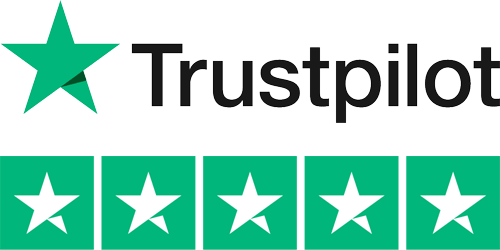Increase your online visibility to boost your sales by up to 30%+ per year. 📈
Get to the top spot in Google without breaking the bank!
Is Buying Backlinks a Good Idea?
 For small businesses and startups looking to improve their online presence, the allure of buying backlinks can be strong. Backlinks are essential in SEO as they signal authority to search engines, helping websites rank higher in search results.
For small businesses and startups looking to improve their online presence, the allure of buying backlinks can be strong. Backlinks are essential in SEO as they signal authority to search engines, helping websites rank higher in search results.
However, buying backlinks—especially from cheap, low-quality sources like Fiverr or similar marketplaces—can backfire. In this article, we’ll explore the risks of buying backlinks, the benefits of high-quality, manually built links, and why backlinks should only be a fraction of your broader SEO strategy.
1. The Role of Backlinks in SEO
Backlinks are a key ranking factor used by search engines to evaluate the credibility of a website. When a website links to yours, it signals to search engines that your content is valuable or relevant, giving your website a “vote of confidence.” However, backlinks are only one piece of a larger SEO puzzle.
- Authority Signal: Search engines view backlinks as endorsements of your website’s authority. High-quality, relevant backlinks from reputable sites can boost your site’s rankings.
- Importance in Context: While backlinks play an important role, they are only one of the hundreds of factors search engines consider. A well-rounded SEO approach—including on-page SEO, technical SEO, and high-quality content—is essential for long-term success.
Relying on backlinks alone won’t provide sustainable results. Instead, a comprehensive SEO strategy provides the foundation necessary for steady growth, of which backlinks are only a part.
2. Risks of Buying Cheap Backlinks from Sites Like Fiverr
Cheap backlinks may seem like a quick, easy win, but they come with significant risks that often outweigh any short-term benefits.
Low-Quality and Spammy Links
Backlinks from cheap sources are often placed on low-quality, spammy, or irrelevant sites. These links can end up on forums, link farms, or unrelated websites, which can damage your website’s reputation.
- Irrelevance: Backlinks from irrelevant sites do not support your site’s credibility and can raise red flags with search engines.
- Lack of Quality: Links from low-quality sites may be detected by Google’s algorithms, which penalize sites that try to game the system with unnatural links.
Google’s Stance and Penalties
Google actively discourages the buying and selling of links and has guidelines that classify paid, manipulative link practices as violations. When Google detects unnatural link patterns, it may penalize the website in question, either by dropping its rankings or removing it from search results entirely.
- Algorithmic Penalties: Google’s algorithms are designed to detect unnatural backlink patterns, which can lead to automatic penalties.
- Manual Action Penalties: In some cases, Google applies manual penalties to websites that violate its guidelines, causing rankings to drop drastically or even resulting in de-indexing.
Short-Term Gains vs. Long-Term Harm
Any positive effects from cheap backlinks are likely to be temporary. Cheap, low-quality backlinks may deliver a small ranking boost initially, but this is usually short-lived, and the damage done to your site’s reputation is far more lasting.
- Temporary Improvement: Low-quality links may generate minor ranking gains in the short term, but these improvements tend to fade as Google detects manipulative practices.
- Long-Term Consequences: Recovering from penalties or rebuilding trust with search engines after using low-quality links can be a lengthy and costly process.
3. The Value and Cost of High-Quality, Manually Built Backlinks
While buying cheap backlinks can harm your site, high-quality backlinks obtained through legitimate means can provide lasting SEO value. However, these links often require considerable effort, time, and financial investment, making them more costly.
Relevance and Authority
High-quality backlinks come from reputable, relevant sites. Links from authoritative domains within your industry not only drive relevant traffic to your website but also strengthen your site’s authority in the eyes of search engines.
- Relevance Matters: Backlinks from websites related to your industry or niche provide a more credible endorsement, showing search engines that your site is a trusted resource.
- Higher Authority Sites: High-authority domains pass more value through backlinks, offering a stronger SEO boost than low-quality links.
Relationship Building and Branding
Obtaining high-quality backlinks often involves relationship building, networking, and collaboration. These efforts improve brand awareness and can even lead to partnerships that benefit your business beyond SEO.
- Guest Posts and Collaborations: Many high-quality backlinks come from guest posting on reputable sites or forming partnerships with other businesses, creating opportunities for brand exposure and credibility.
- Credibility and Recognition: The more you collaborate with reputable sources, the stronger your brand becomes in your niche.
Cost Implications
High-quality backlinks require time, effort, and often, professional outreach, which makes them more expensive. However, the long-term benefits in terms of rankings and brand reputation make this investment worthwhile.
- Time and Effort: Building these links requires outreach, content creation, and a strategic approach, contributing to the higher costs.
- Long-Term Value: Although more costly, high-quality backlinks provide enduring SEO benefits and are less likely to lead to penalties or ranking drops.
4. Backlinks Are Only a Small Part of the SEO Puzzle
While backlinks play an important role in SEO, they are just one piece of a larger, complex SEO strategy that includes content quality, on-page optimization, and technical SEO.
Importance of On-Page SEO
On-page SEO optimizations, such as using relevant keywords, crafting high-quality content, and optimizing meta tags, play a foundational role in helping search engines understand your site’s purpose and relevance.
- Keywords and Relevance: Choosing the right keywords for your content ensures that it’s discoverable by search engines and relevant to user searches.
- Content Quality: Google rewards high-quality, helpful content that meets user intent. On-page SEO builds trust and value for users, creating organic opportunities for other websites to link back to your site naturally.
Technical SEO and User Experience
Elements like page speed, mobile-friendliness, and site structure are crucial in helping search engines crawl and rank your site effectively. Technical SEO contributes to a positive user experience, which search engines favor.
- Mobile Optimization: With mobile-first indexing, Google evaluates the mobile version of your site, so ensuring it’s mobile-friendly is crucial for SEO.
- Site Speed: Faster loading times improve user experience and reduce bounce rates, leading to better rankings over time.
Content as the Core of SEO
Creating high-quality, relevant content is the foundation of a successful SEO strategy. Not only does it enhance user experience, but it also attracts organic backlinks naturally, improving your SEO without the need for purchased links.
- Linkable Content: Content like guides, research articles, and infographics naturally attract backlinks from reputable sources, which benefits SEO in a sustainable way.
- Establishing Authority: As you publish valuable content, your website builds authority in your niche, helping to improve search rankings and encourage other websites to link back to you organically.
5. Building Organic Backlinks Through Quality Content and Engagement
Rather than buying backlinks, focus on creating valuable, link-worthy content that attracts links naturally. This strategy not only aligns with Google’s guidelines but also builds a more authentic, long-term SEO profile for your website.
Content Marketing and Linkable Assets
Investing in content marketing by creating informative, helpful resources increases the likelihood that other websites will link to your site as a valuable resource.
- Educational Content: Guides, how-tos, and research articles often attract backlinks as other sites reference them.
- Visual Assets: Infographics and data visualizations are highly shareable and can help your content earn organic backlinks.
Guest Blogging and Outreach
Guest blogging and outreach involve contributing valuable content to other reputable websites in exchange for backlinks, helping build authority without risking penalties.
- Targeted Outreach: By reaching out to reputable sites within your niche, you can secure valuable links that enhance your site’s authority.
- Building Relationships: Collaborating with other businesses or industry experts builds your brand’s network and credibility.
Social Media and Community Engagement
Engaging with your target audience on social media and industry forums can increase brand exposure and generate organic backlinks.
- Content Promotion: Promoting your content on social media increases its visibility, which can lead to more organic backlinks.
- Community Interaction: Active engagement in industry-related forums and communities can boost brand recognition and lead to backlink opportunities.
Conclusion: The Long-Term Benefits of a Comprehensive SEO Package
Buying backlinks, especially from low-quality sources, often leads to more harm than good. Penalties, damage to your brand’s reputation, and temporary ranking gains make it a risky choice. While high-quality, manually-built backlinks can provide real SEO value, they are only one component of a balanced strategy. A comprehensive SEO package that includes on-page optimization, technical SEO, and content creation will produce better results and sustainable growth over time.
Instead of investing in expensive backlinks, small businesses are better served by a monthly SEO package that builds their online presence organically, providing reliable results without the risks associated with bought links.
Share this:
- Click to share on X (Opens in new window) X
- Click to share on Facebook (Opens in new window) Facebook
- Click to share on LinkedIn (Opens in new window) LinkedIn
- Click to share on Reddit (Opens in new window) Reddit
- Click to share on Tumblr (Opens in new window) Tumblr
- Click to share on Pinterest (Opens in new window) Pinterest


Leave a Comment